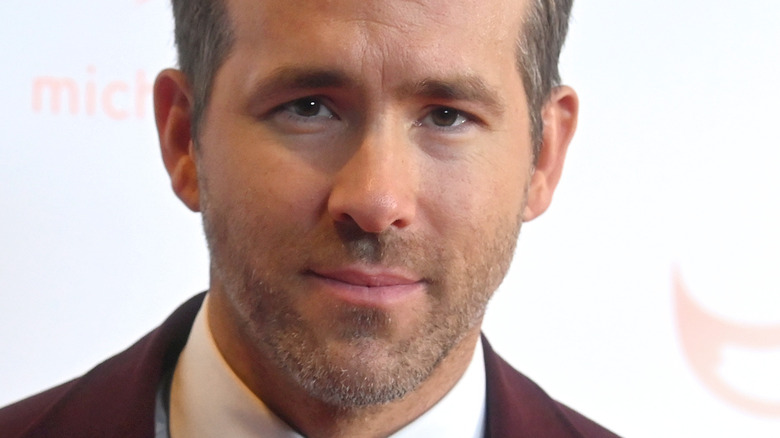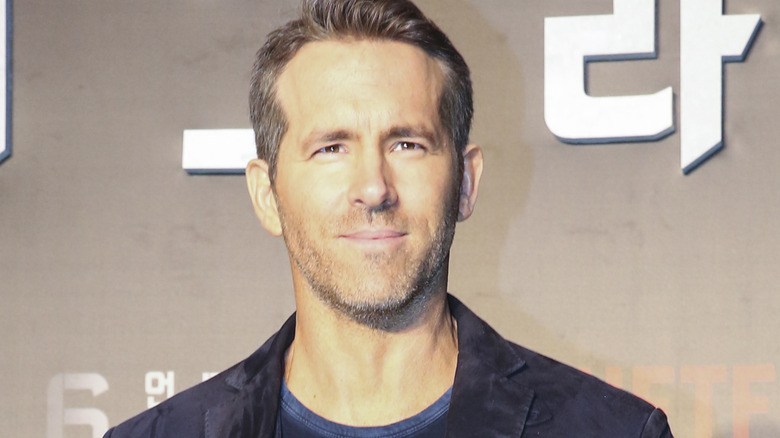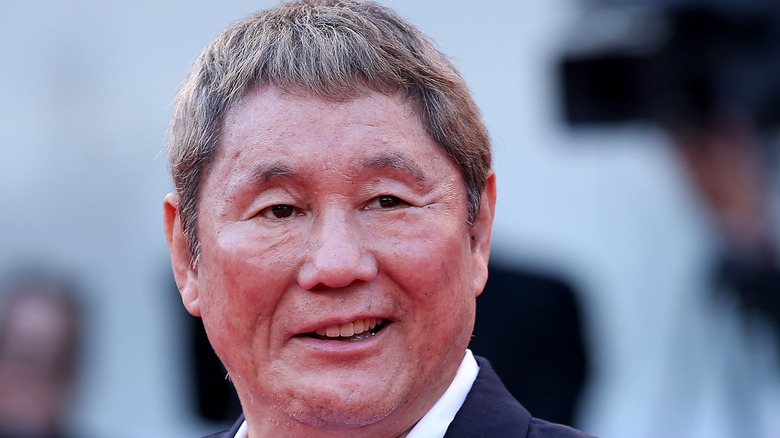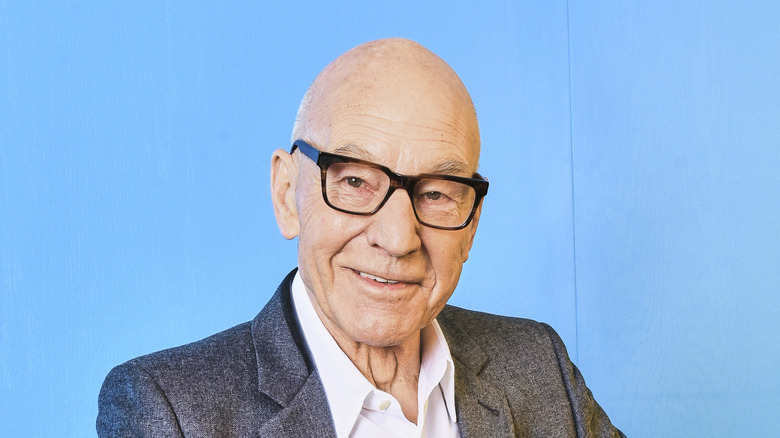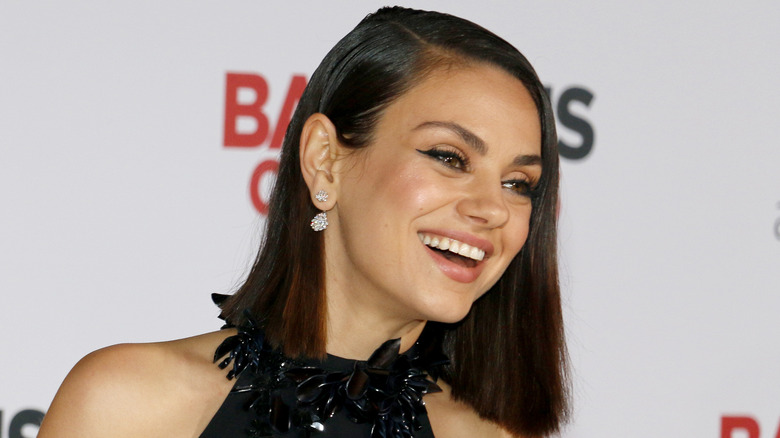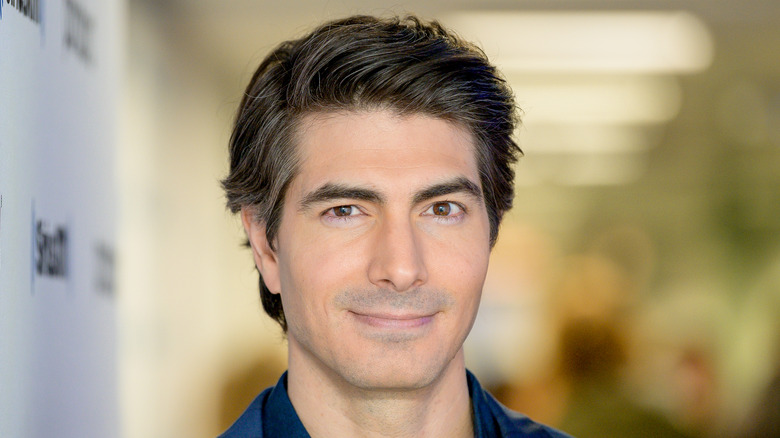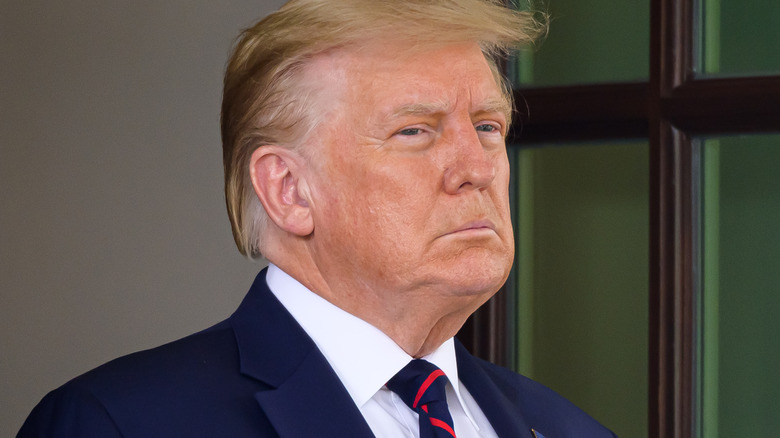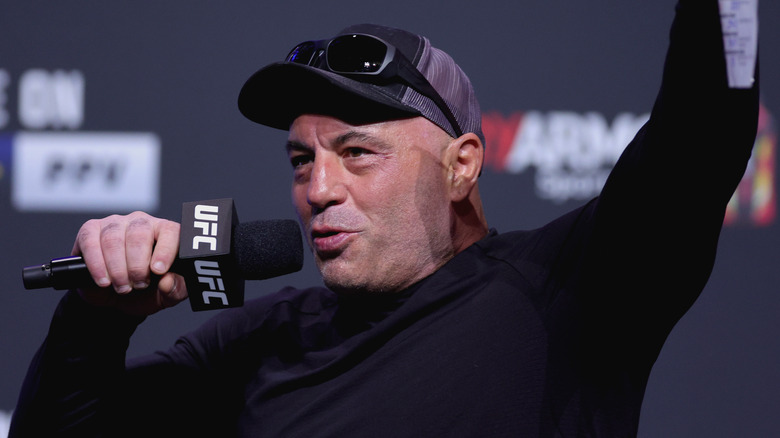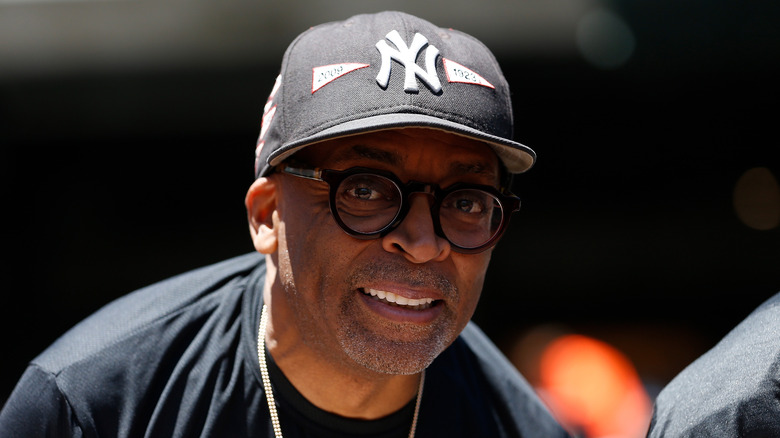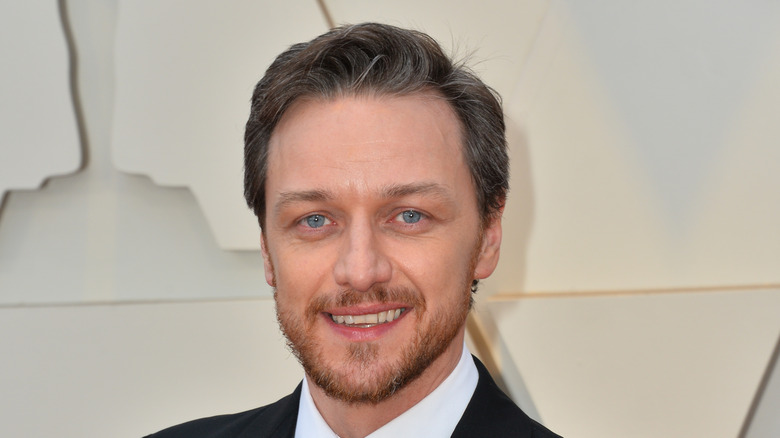Video Game Actors Who Hate Video Games
Sometimes it can be difficult to separate an actor from one of their performances. Jack Gleeson, for example, is far less recognizable to many than one of his on-screen personas, Joffrey Baratheon, who he portrayed in HBO's "Game of Thrones." While Gleeson may have skillfully embodied a sadistic child king on-screen, he's since distanced himself considerably from that role. It turns out Gleeson doesn't particularly enjoy "Game of Thrones" or its source material, "A Song of Ice and Fire."
Gleeson is far from the only actor to have performed under such circumstances. Idris Elba, for example, publicly resented his role in "Thor: The Dark World," which he later reprised in "Avengers: Infinity War." Acting is, after all, a profession and not an implicit endorsement.
Video game movies are famously bad (albeit sometimes successful), so it's no wonder that on-screen performers sometimes harbor a testy relationship with gaming, in spite of involvement in a video game or a game adaptation.
Ryan Reynolds
"Free Guy" is a film about a video game NPC becoming a hero in his game world after attaining sentience. The titular NPC, Guy, is portrayed by Ryan Reynolds, who once stated in an interview that he finds video games to be a waste of time.
To be fair, Ryan Reynolds shared his public disdain for video games in 2009, well in advance of his involvement in "Free Guy". Since then, he's played the "Deadpool" video game with streamer Jacksepticeye — who also appeared in "Free Guy" — though the conceit of that collaboration was that it was Reynolds' first time playing a video game in a long while.
In the "Deadpool" game, the role of Deadpool is performed not by Reynolds, but prolific video game actor Nolan North, further distancing Reynolds from the video game world, given that the titular role in the game is based on a film role of his. Reynolds' sole video game credit to date is the voice of Hal Jordan, the incarnation of the Green Lantern he portrayed in the 2011 "Green Lantern" film, in its video game adaptation.
Beat Takeshi
In 1986, Japanese actor and director Takeshi Kitano designed a game in the midst of his film career bearing his name in its title. Kitano, known at certain points in his career as Beat Takeshi, released "Takeshi's Challenge" for the Famicom, which would become the NES in the U.S. It's famously terrible.
Its challenges include singing into the Famicom controller's built-in mic and fighting Beat Takeshi himself, who must be hit 20,000 times before he can be vanquished. Such design decisions were not made out of ignorance but due to Kitano's disdain for gaming.
In addition to video games, Kitano has publicly expressed not liking Twitter, email, cell phones, or even computers in their entirety.
Kitano appeared in the critically acclaimed "Yakuza 6: The Song of Life" well after publicly expressing his resentment for gaming and Twitter alike. He did so not due to a softening of his views on games but due to being drinking buddies with Yakuza lead designer Toshihiro Nagoshi. He recounted one day working up the courage to ask Kitano to appear in the final entry in Kazuma Kiryu's saga, once again demonstrating that an acting performance is never inherently an endorsement.
Patrick Stewart
Patrick Stewart is a thespian of legend. He has won countless awards, is a classically trained Shakespearean actor, and was even knighted by Queen Elizabeth II. Sir Stewart is not afraid of any role, but he doesn't feel the same about video games.
Most audiences know Stewart as Captain Jean-Luc Picard in "Star Trek: The Next Generation" and Professor Charles Xavier across several "X-Men" movies. But, while Stewart's most famous roles lie in live-action, he is no stranger to voice acting. "American Dad" fans no doubt recognize him as the voice of Avery Bullock, but Stewart has also portrayed several video game characters, most notably Emperor Uriel Septim VII in "The Elder Scrolls 4: Oblivion" and Zobek in the "Castlevania: Lords of Shadow" games. However, while Stewart participated in the creation of these games, it's safe to say he never played them.
Stewart apparently has a ton of games in his home, mint in packaging, that he's never played. Why? Because in his own words, he has an "addictive personality." He is afraid that if he starts playing these games, he won't be able to stop. Sir Patrick Stewart doesn't exactly hate video games; far from it. He just knows his own limits and is afraid of what will happen if he picks up a controller.
Mila Kunis
Once upon a time, "World of Warcraft" was the most popular game out there, and almost everyone played it, including celebrities. However, while some gamers eked out a reasonable play schedule, others became addicted. Mila Kunis was one of the latter.
Kunis has starred in countless shows and movies, playing on-screen characters ranging wildly from Lily in "Black Swan" and Jupiter Jones in "Jupiter Ascending." Animation fans likely know her best as Meg Griffin from "Family Guy." Kunis has reliably voiced the character since 1999, and most of her video game gigs have seen her reprise that role. The only exception to that pattern was Tanya Winters in "Saints Row."
Although Kunis never voiced a character in "World of Warcraft," her obsession with the game is public knowledge. However, she eventually had to quit "WoW" altogether. Kunis' reasoning came to light in an episode of "Hot Ones," a show where host Sean Evans asks guests questions as they eat progressively spicier hot wings. While in the throes of pain brought on by Da Bomb Beyond Insanity hot sauce, Kunis stated that she realized she was playing too much "WoW" when an agent had to log onto the game to message her about work. She didn't say when this happened, but since she apparently quit "cold turkey," she probably never looked back.
Brandon Routh
Filming movies is no easy task. Everyone involved hopes to see a return, on their time and money investments. Realizing a film is a flop can be a huge blow, especially to the leading actor/actress, and different people have different coping mechanisms. For some, it's video games.
Brandon Routh's first roles in DC Comics properties were Superman in the live-action film "Superman Returns" and Everywhere Man in animated series "The Batman." Recently, Routh found a reliable line of work as Ray Palmer, a.k.a. The Atom, in "Legends of Tomorrow," "The Flash," and other live-action DC shows. Routh reprised these roles in video games (Superman in the "Superman Returns" tie-in and the Atom in "Lego DC Super-Villains"), but he also got to portray David "Hesh" Walker in "Call of Duty: Ghosts." Of course, that all came after he recovered from a "World of Warcraft" addiction.
During the first filmed episode of Michael Rosenbaum's "Inside of You" podcast, Routh admitted that the failure of "Superman Returns" affected him so much that he started playing "World of Warcraft" as "therapy." In retrospect, Routh realized that the game was a coping mechanism at best — one that wasn't helping him. Eventually, he came to terms with his "WoW' addiction and kicked it thanks to the support his wife and fellow actress Courtney Ford.
Donald Trump
During his presidency, Donald Trump made a number of controversial claims (and tweets) about virtually everything under the sun, including video games. Following a string of mass shootings, he blamed video games and claimed they made people violent, despite numerous studies stating otherwise (per Forbes). This act drew the ire of a number of figures in the gaming community, including a clapback from Twitch superstar Ninja. The irony of this situation was that Trump once marketed a video game, stamped his likeness on it, and even provided some voice lines.
In 2002, Activision published a real estate sim called "Donald Trump's Real Estate Tycoon." The goal of the game is simple: manage properties in five cities until you can challenge and dethrone Donald Trump. Throughout the title, Trump shows players the ropes and congratulates them on a job well done. One might wonder why Trump would participate in a medium that he would later claim is responsible for gun violence, but maybe he just changed his mind. On the other hand, real estate doesn't get quite as grisly as, say, "Grand Theft Auto."
Joe Rogan
When developing sports games, realism is key. Gamers tend to prefer titles that accurately mimic physics and transcribe the likenesses of sports stars. That's why developers have asked real sportscasters to voice play-by-plays in their games. Unfortunately, sometimes the personal opinions of sportscasters get in the way of developing a true-to-life experience.
Joe Rogan is a man of many hats. He's been a UFC fighter and commentator, a comedian, and a podcaster. On his show, Rogan has and will discuss every topic under the sun, including video games. — and he doesn't mince words. While Rogan doesn't really believe that video games make you more violent, he doesn't try to hide his true feelings. Overall, he thinks video games are a "waste of time." Rogan has said he believes your days are better spent learning martial arts or reading books, which explains his short-lived experience voicing himself in video games.
Rogan is one of the commentators in the first three "EA Sports UFC" games, but not "UFC 4." According to developers, Rogan hated the gig from day one. He was very open about how he found the process of reading lines in a recording booth for hours on end "mind-numbing." And technically, Rogan called it quits after "UFC 2" — his "lines" in "UFC 3" are actually recordings of his commentary from real UFC fights stitched together into "new" commentary.
Rogan seemingly has nothing against video game developers, he just despises video games and the process of making them.
Spike Lee
Hideo Kojima is arguably the most famous video game auteur director out there, but Spike Lee almost fills that criteria thanks to his sole video game role — and the irony behind it.
Lee is an award-winning director, writer, and producer with over 130 movies to his name. He created films such as "Malcom X," "Do the Right Thing," and "Inside Man." Each of these titles is a window into Lee's opinion of black community, race relations, and how they're portrayed in the media, especially video games. He is known for criticizing games in general, primarily crime-themed ones such as "Grand Theft Auto." Lee has openly admitted he is horrified about their "infatuation with violence and gangsta rap" and how so many younger people play them (per BackStage). Look no further than the fake "GTA"-clone in "Inside Man" to see these kinds of games through his eyes. However, that didn't stop Lee from directing a video game.
One of the biggest selling points of "NBA 2K16" was its MyCareer mode, which was turned into a story-driven campaign directed by Spike Lee. The mode was even called a "Spike Lee Joint" because he was so involved in its development. Furthermore, Lee shows up at the start of the game mode so he can welcome audiences to his story. Admittedly it's a bit part, but he was the director and heavily involved in mode's development. Lee may not hate video games as a whole, but some fans may have been surprised to see his involvement with one after his strong critiques.
James McAvoy
The epiphany that you're addicted to a video game can be pretty powerful. When combined with enough willpower, this realization can convince some people to stop playing for years on end.
James McAvoy is a prolific actor who can slip into countless roles. You don't need to look any further than "Split" to see his acting range given the multiple personalities of Kevin he had to portray. But, McAvoy is also known for his roles as a young Professor Charles Xavier in recent "X-Men" films and Bill Denbrough in the "It" movies. So far, McAvoy's sole video game credit is the Husband in "Twelve Minutes," which is surprising given his history with video games. Or not surprising, depending on how you look at things
During an interview with Forbes, McAvoy recalled his brief addiction to video games, as well as how he kicked the habit. During the filming of "Becoming Jane," McAvoy started playing "The Elder Scrolls IV: Oblivion," which was a gift from his partner. He was so hooked on the game he regularly played until the early hour of the morning. One gaming session, McAvoy played from 8pm to around 5:35am, only getting ten minutes of sleep because he had to be on set by 6am. To make sure that never happened again, McAvoy says he turned on the stove and watched the disc fry for a bit. That was the start of his gaming abstinence, which lasted 10 years and only ended because his son convinced him to play some "FIFA."

